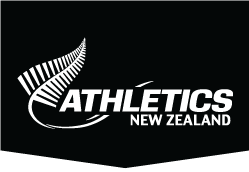Beatrice Faumuina
A trailblazing athlete who helped usher in a golden period of New Zealand throwing Beatrice Faumuina – fondly known as Queen Bea – is perhaps best remembered for creating history in 1997 and becoming the first Kiwi to win a world championship title.
Strong and athletic, Beatrice also won back-to-back Commonwealth discus titles, a World Cup crown competed at four Olympic Games and her mark of 68.52m set in Oslo in 1997 still stands today as a New Zealand record.
An only child born and raised in Lynfield in West Auckland by her mother and grandmother her family instilled in Beatrice a belief and work ethic which would later allow her to thrive.
“I saw my mother work during the day and study in the evening to advance her career and I thought that was normal,” explains Beatrice. “I saw from my family who migrated from Samoa that I was part of an environment where there was choices and opportunities. I had a really understanding of wanting to contribute towards ...
